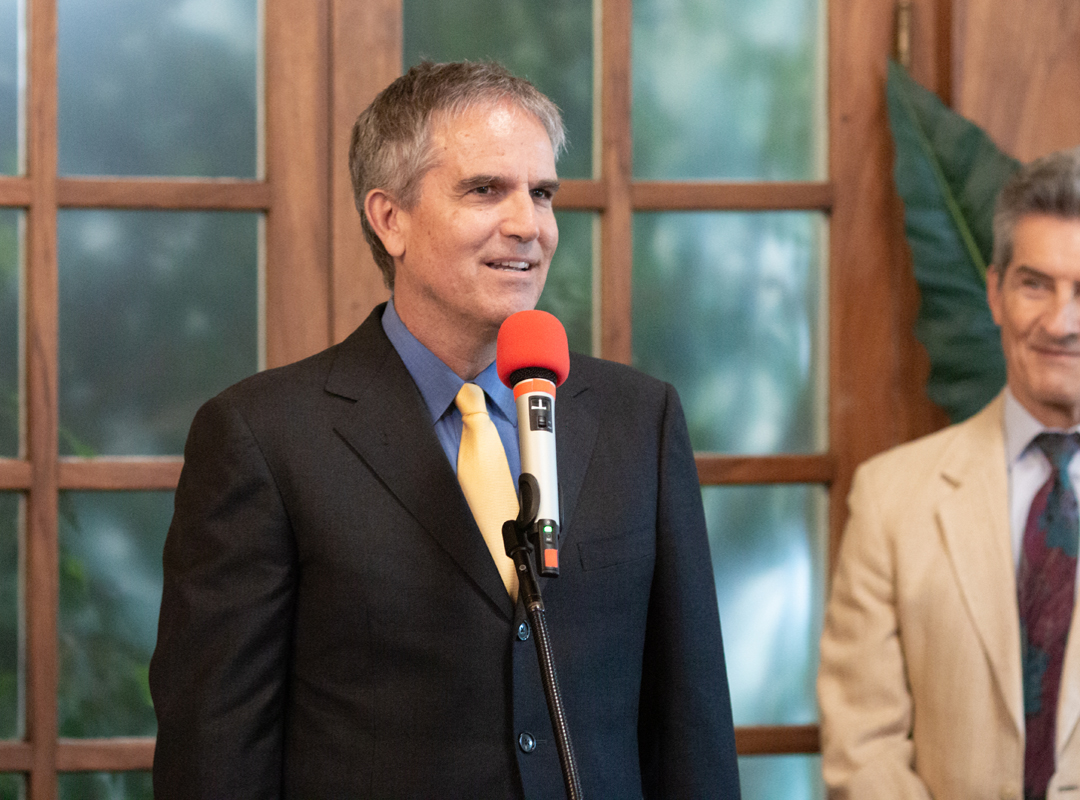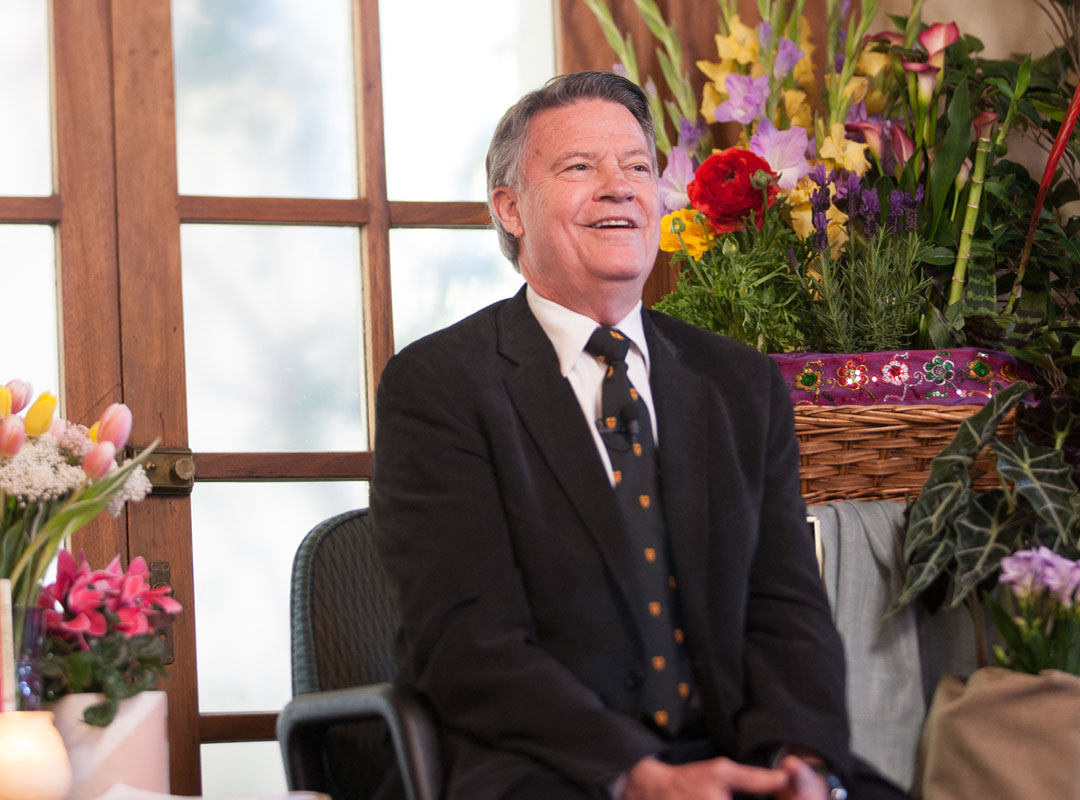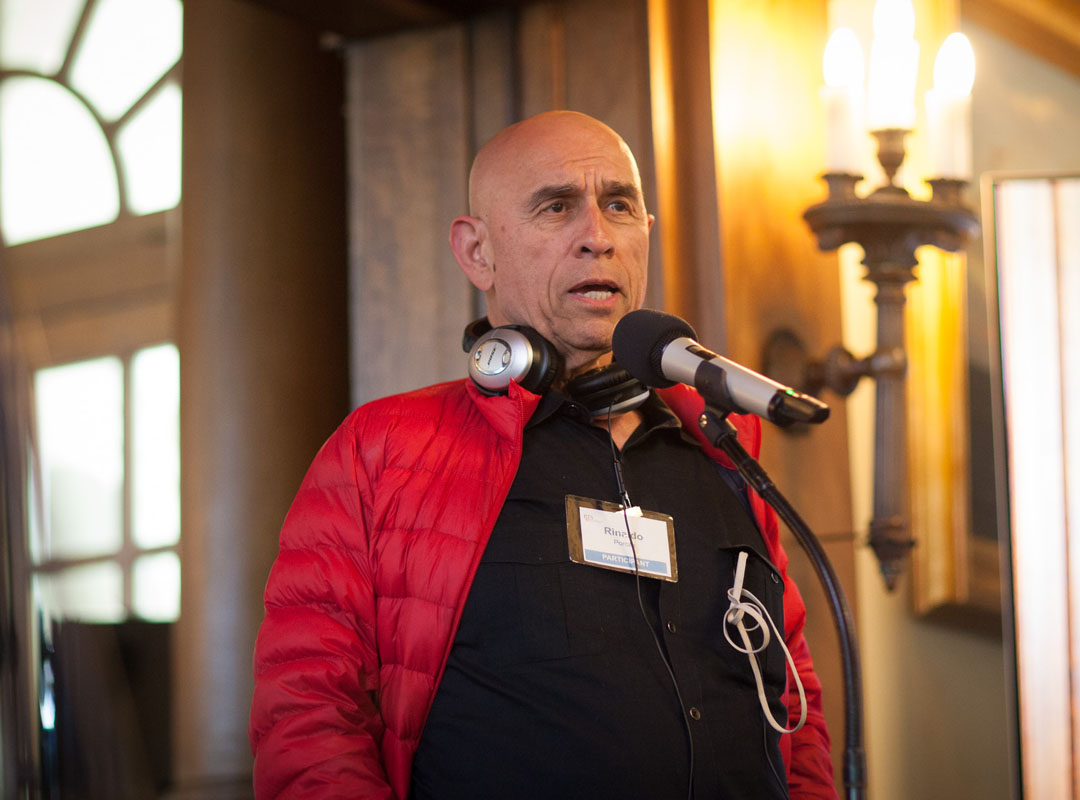 When people say, “I want to be of service,” they have a lot of ideas about what that represents. But I look at the word service itself, not at my idea about the word, to find out what it’s conveying to me, because often the meaning is within the frequency of the word. And I’ve found that when we are being of service, that means we are freely doing without any other thought in mind. When you serve this way, all of your things are put away in terms of what you want, and you do in terms of what’s there to be done, without anything coming back to you at all. It’s not, “I’ll be of service so I can gain.” You just do, to do, to do, to do, to do. And that’s it. If anything comes back, it comes back, and if it doesn’t, that’s really quite all right. In fact, if it does come back, you may have no place to put it because that’s not what you’ve prepared for. You were just there to be there.
When people say, “I want to be of service,” they have a lot of ideas about what that represents. But I look at the word service itself, not at my idea about the word, to find out what it’s conveying to me, because often the meaning is within the frequency of the word. And I’ve found that when we are being of service, that means we are freely doing without any other thought in mind. When you serve this way, all of your things are put away in terms of what you want, and you do in terms of what’s there to be done, without anything coming back to you at all. It’s not, “I’ll be of service so I can gain.” You just do, to do, to do, to do, to do. And that’s it. If anything comes back, it comes back, and if it doesn’t, that’s really quite all right. In fact, if it does come back, you may have no place to put it because that’s not what you’ve prepared for. You were just there to be there.
Someone may come to you and say, “I want to be of service.”
You say, “Clean out the toilet.”
They say, “Oh, no, I don’t want to do that.”
“Well,” you ask, “what do you want then? Do you want to manage the place?”
“No.”
You then ask, “What is your idea of service?”
They say, “Well, what I want is to come in and keep your books.”
You tell them, “We already have an accountant.”
“Well, I want to come in and do this and do that.”
“We have other people doing those things,” you say. “Did you want to be of service, or are you looking for a job?”
Do you see the difference? With the job, you are somehow getting paid for what you do. It may be money. It may be adulation of the masses, or of the few people you know. It may be something where you get an intrinsic or extrinsic return. Service is not that. When you’re in service, very few people may know that. In other words, you don’t tell your neighbors, “Oh, I’m of selfless service,” because all of a sudden it’s no longer selfless. It’s egoistic service.
To be of service is not a state of wishful thinking, like, “Oh, I wish I could be of service.” That’s looking for ego gratification. The place of being of service is moving and doing that. However, we all should be very careful that we don’t go to a place of service and try to do brain surgery when we’re not licensed, thinking, “Well, I’ll just anonymously help them with their brain surgery because we all have masks and gowns on, and who will know the difference?”
When we are dealing in ability services, people often say, “I’d like to be of service. What can I do?”
We say, “Well, what can you do?”
They say, “I don’t know. I thought you could tell me.”
“Clean out the toilet.”
“No, I don’t like to do that.”
Then other people come in and say, “I have these abilities. I can do this and this and this, and that’s my ability service.”
And we ask, “What are you after in you ability service?”
They say, “Well, nothing, really, but maybe I could sharpen up my talents.” That’s not service; that’s on-the-job training. Those who have high service skills serve without sharpening up, without gaining for themselves. They just enter into the process of giving. People who do only that are rare individuals.
It’s also quite interesting that if you don’t have time to be of service, you never have time to be of service. That may sound like double-talk, but it isn’t. In other words, you really won’t have time to eat right, you really won’t have time to do your work right, you really won’t have time to do this, you really won’t have time to do that. And so you’re a timeless person, and everything is always against you. These people say, “I don’t have time to do that. I’m so busy doing these other things.” I rarely let an individual with that type of consciousness do anything for me. Though they may ask, I say, “Oh, no, I want to give it to someone who’s busy and who knows what they’re doing, because they’ll just put it in and do it with everything else, and it will really be done. But because you don’t have time, I’m going to have to worry about your time because you’re worried about your time. With the other person I don’t have to worry because they’re doing what has to be done.”
Let’s say that we sit down and agree that we are all going to be of service. One person says, “Okay,” and just sits there.
You ask, “Well, are you going to be of service?”
The person says, “I am. I’m here. That’s my service.”
Somebody else says, “I stacked all the books and stamped them and got them mailed while you were sitting there.”
The person asks, “How did you know I was just sitting here?”
“Well, I kept watching you watch me do it.”
They say, “And that’s why you did such a good job, because I was watching you. That’s why I was of service.”
You think, “Oh boy, that’s fancy work. That’s a slick one.” But is it wrong?
We may say, “Service here today means that we all physically get up and clean this floor until it’s clean—not until one person thinks it’s clean, but until we all agree it’s clean.”
So we all clean the floor, and it’s done. We all agree that it’s clean and walk out. If I come back in and say, “It’s still dirty,” you might say, “Then you be of service and you clean it.”
I may say, “Okay, I accept your definition of service because I’m not going to do that.”
If you say, “Well, you would expect us to do it, but you’re not going to do it,” then I might respond, “I didn’t expect you to do anything. I expected you to do exactly what you did. You weren’t of service. You were after something.”
When we’re of service and we do something, if somebody says, “That’s good,” we say, “Okay.” If they say, “That’s bad,” we say, “Okay.” Why? Because it’s just service, and that is a commodity that is freely given. It doesn’t matter what you think or say or do about it. If we can be of that type of service, that means we have, indeed, put ourselves away at that moment, and we have let that energy of completeness and fruition come through.
It’s amazing how we can sometimes be of greater service and do more for someone else than we will ever do for ourselves. I know of nurses who make beds in hospitals every morning but never make their own. And when they do, you wouldn’t want to sleep on those wrinkles anyway. But if you leave a wrinkle in the hospital bed, they’ll rip it apart vindictively and show you how to make the bed, to be of service. But they will not serve themselves.
People have often told me, “J-R, when I do something for you, I really do that so well, so perfectly. I really put time and effort into it so that you feel good about it.”
I say, “Yes, and with your own stuff, you’re sloppy. Do you think I feel good about that? I don’t feel good about any of it because you’re just robbing yourself to give to me, and you think that I don’t know the difference. How can you think you’re being of service? If you rob yourself in your daily expression to give to me, you’ve robbed me in that same expression. So you’re robbing me six days a week to pay me one day.”
I’ve found that we receive through the same opening through which we give. Here’s a physical metaphor to illustrate the concept. Let’s say that I take a large piece of paper with a one-inch hole in the middle, and hold it up in front of my face. And let’s also say that the paper represents my body, or my service, or my intellect, or my willingness, and the hole represents how much of me I am willing to give to you. What you see of me is only what you can see through this little hole, and what I see of you is also through this hole.
Since the mechanism through which we give is the same mechanism through which we receive, when I don’t get to see both of your eyes and I moan and groan and complain, whose fault is that? I’m the one who made the one-inch hole. And how can you possibly see me through this little hole? If I say, “I love you,” will you really be able to see how radiant that love is?
So I may ask, “What if I make a slightly bigger hole?”
You ask me, “Can you drive a Cadillac through there?”
I reply, “Not very well, but I’ve got this little toy Cadillac. How will that do?” And then you may feel cheated because I still haven’t given all I could.
Are you getting the idea? If I’m truly going to receive the way I give, I say, “Here, take it! Go ahead!” Why? Because that’s the way I’m going to receive: wide open.
Baruch Bashan
















